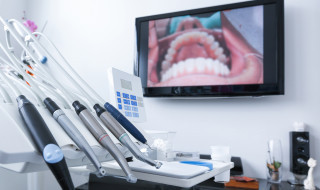 Teymour Mirza explains what it is like to work for a dental corporate and provides ‘a day in the life…’
Teymour Mirza explains what it is like to work for a dental corporate and provides ‘a day in the life…’
Having qualified in 1990, my first 12 years were in a mixed private and NHS practice. I then set up my own private practice, which developed into a role as the lead associate in a combined dental laboratory private practice.
Following this, I became interested in moving into corporate dentistry as a means of returning to delivering high quality healthcare, without having to face the bureaucracy, administration and governance. I felt I needed the security of a management structure.
Day-to-day workflow
On a typical day I will see around 15 patients or so. A usual day would comprise of 50% of examinations with restorative dentistry. The day begins with reviewing my list of patients and running through their clinical notes and radiographs to prepare for specific items at examinations or for restorative work. I would typically examine each patient’s notes and medical history, so that I know as much as possible regarding the patient’s reasons for the appointment.
When I see a patient, we run through a number of checks to establish how they are managing their dental health before even looking in the mouth. I then decide on the optimum course of action. In our practice we also typically work alongside a hygienist, offering combined visits. This is something that as a dental services provider in a corporate, our practice is very well positioned to offer.
Career development
Another area that is enhanced through working for a corporate is the completion of continual professional development. Bupa has links with some leading online training providers, which makes the whole process very smooth; a lot of this can be completed remotely or in practice.
Working for a corporate also enriches the way you can develop and foster your own career and future goals. There are a number of roles that are available to dentists in a corporate that you would not find in an independent practice. For instance, besides being an associate dentist, I also have a clinical lead role, which means one day a week I look after a number of surgeries and the dentists and staff there. This involves working with eight other practices in the northern region, ensuring their quality and performance standards are maintained, and assisting the practice managers with their role, as well as helping to resolve any staff or patient issues. As corporates expand and grow, opportunities like this will continue and there will be more roles arising over time.
Structured management system
While there are a number of benefits of working for a corporate, there are also some challenges that you may not face in independent practice. The main day-to-day challenges tend to be connected to the number of protocols, policies and procedures, which are likely to be more structured than many independent practices.
In my experience, these generally benefit patients and improve quality but they can take some time to adjust to. It may also sometimes take longer to get things approved than it might within a practice where you can go and speak directly to the decision maker! I think that’s the nature of any corporate and it’s a reasonable compromise in exchange for the beneficial management and logistical support that being part of a corporate delivers. What’s more, all the managers and senior managers are very approachable and accessible.
For an associate dentist, working for a corporate on a day-to-day level isn’t wholly different to working in an independent practice. But, while there are certainly challenges, there are also significant benefits and opportunities that you wouldn’t find elsewhere. For me, it was the desire to be more of a dentist than a manager that drew me to this environment, and while there will still always remain an aspect of management in what we do, this has allowed me to put the focus back on what I enjoy most and what I was trained to do.
To find out more about the world of ADG please visit www.dentalgroups.co.uk.


